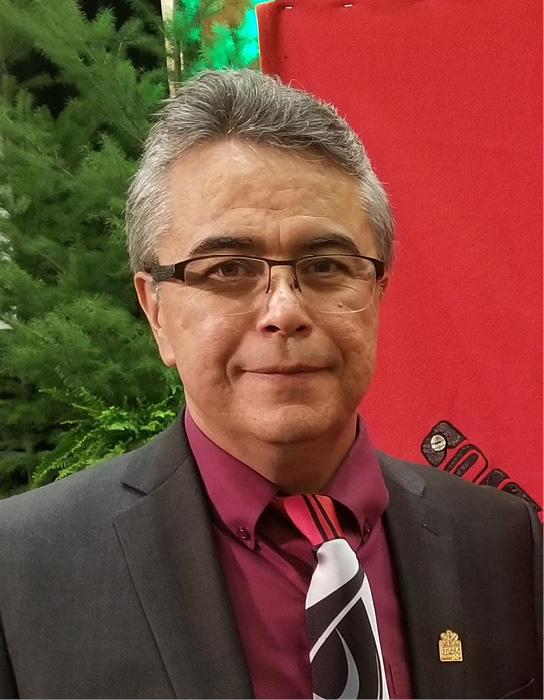2022–23 Annual Report of the Canada Energy Regulator
2022–23 Annual Report of the Canada Energy Regulator [PDF 2856 KB]
Copyright/Permission to Reproduce
ISSN 2563-3155

Table of Contents
- Message from the Chairperson
- Message from the Chief Executive Officer
- Message from the Indigenous Advisory Committee Chairperson
- Overview of the Canada Energy Regulator (CER)
- Canada Energy Regulator – A Clear Path Forward
- What the CER regulates: Energy in Canada
- Core Responsibilities: The CER’s Achievements in 2022–23
- What the Future Holds
- Appendix A: Biographies
- Appendix B: Financial Overview
- Appendix C: Service Standards Results
- Appendix D: Regulatory Framework Projects
- Appendix E: Audits
- Appendix F: Inspection Officer Orders Issued in 2022–23
- Appendix G: Warning Letters and Administrative Monetary Penalties
- Appendix H: Abbreviations and Definitions
Note:The 2022–23 Canada Energy Regulator Annual Report is one of three Annual Report documents that summarize the Canada Energy Regulator’s achievements of the past year. To learn more about the work of the Canada Energy Regulator as a whole, please see the 2022–23 Commission Annual Report , or the Departmental Results Report 2022 23 (to be published in fall 2023).
Message from the Chairperson
 The Canada Energy Regulator (CER) is Canada’s federal energy regulator. The CER plays a critical role in keeping energy moving safely across the country and sharing important energy information in the public interest. The foundation of this work is rooted in the Canadian Energy Regulator Act (CER Act) and the CER advances its mandate with the support of the deep technical experience and expertise of its decision makers and staff.
The Canada Energy Regulator (CER) is Canada’s federal energy regulator. The CER plays a critical role in keeping energy moving safely across the country and sharing important energy information in the public interest. The foundation of this work is rooted in the Canadian Energy Regulator Act (CER Act) and the CER advances its mandate with the support of the deep technical experience and expertise of its decision makers and staff.
This Board of Directors Annual Report for 2022–23 is an overview of the CER’s activities and achievements from the past year, as we drive towards the final year of our three-year Strategic Plan. The CER’s Board of Directors is responsible for the governance of the Regulator – setting the strategic direction of the organization with a keen focus on results and outcomes.
In 2022–23 the CER has continued to effectively deliver on its mandate, with safety at the core, and made significant progress towards advancing its Strategic Plan and delivering on its strategic priorities: trust and confidence; competitiveness; data and digital innovation; and Reconciliation. In each of these areas, as presented in this report, the organization has delivered results that demonstrate the strategic direction set by the Board.
Throughout the year the Board and the CER Indigenous Advisory Committee (IAC) have worked together to advance our shared work. Key among this is the co-development of a Statement of Reconciliation. This publicly states the CER’s commitments, guiding principles and values as we continue our journey towards implementing the UN Declaration on the Rights of Indigenous People (UN Declaration). This work would not be possible without the Board and IAC coming together in partnership with a shared desire to lead an agenda of change to advance Reconciliation.
In February 2023, the Minister of Natural Resources, the Honourable Jonathan Wilkinson, provided the Government’s key priorities to the Board, confirming that the CER’s strategic priorities are well aligned with those of the Government of Canada.Footnote 1 The Board and organization also welcomed Minister Wilkinson’s direction to “…undertake scenario analysis consistent with Canada achieving net-zero emissions by 2050…”. This is a natural progression to the in-depth and objective analysis work included in the CER’s flagship Energy Futures Reports. In spring 2023, the CER will release the newest iteration of the Report that responds to this request from the Minister.
The CER’s greatest strength is its people. During my time as Chair of the CER, I have always been impressed by the caliber, professionalism and agility of the Regulator’s staff. I have been impressed with their creativity in addressing challenges and the commitment they bring to supporting the mandate of the organization and each other. On behalf of the whole Board, I would like to sincerely thank the entire CER staff for their hard work over the last year.
This will be my last Annual Report as Chair of the CER’s Board of Directors. As appointed by the Governor in Council, on August 22, 2023, current Vice-Chair George Vegh will become Chair, and Director Melanie Debassige will move into the role of Vice-Chair. I am pleased to be staying on as a Director and will continue to support the strong continuity of governance. It has been a great honour to serve as the founding Chair of the CER, and I am proud of our strategic achievements over the past four years.
On behalf of my Board of Directors colleagues, I respectfully submit the Canada Energy Regulator's 2022–23 Annual Report to the Honourable Jonathan Wilkinson, Minister of Natural Resources
Original signed by
Cassie J. Doyle, Chairperson
Board of Directors of the Canada Energy Regulator
Message from the Chief Executive Officer
 Looking back on the last year, I am proud of the work the CER has done in overseeing federal energy systems on behalf of Canadians.
Looking back on the last year, I am proud of the work the CER has done in overseeing federal energy systems on behalf of Canadians.
As an organization, we continue to adapt to meet the changing needs of those we serve, and to ensure readiness to regulate Canada’s evolving energy landscape. In this transition to a net-zero future, our commitment to safety remains unwavering. Protecting people and the environment is at the heart of who we are and what we do – always.
The mission of the CER is to regulate infrastructure to ensure the safe and efficient delivery of energy to Canada and the world, to protect the environment, to recognize and respect the rights of Indigenous Peoples, and to provide timely and relevant energy information and analysis. We accomplish this through work in each of our core responsibilities: safety and environment oversight, energy adjudication, energy information and engagement.
In the last year, we held regulated companies accountable for the safe construction, operation, and abandonment of energy infrastructure that Canadians rely on by enforcing some of the strictest safety standards in the world. We are monitoring trends closely and reviewed reported incidents to identify ways to prevent further occurrences. We also shared what we learned with industry, other regulators and damage prevention associations and worked to improve safety culture awareness and understanding, both for safety and environmental protection.
In the field, CER Inspectors worked in partnership with Indigenous Monitors to expand our understanding of matters of importance to Indigenous communities impacted by energy projects, including places of spiritual significance and other valued resources. This collaborative approach is helping us learn how to better incorporate Indigenous perspectives in how we assess risk, ensure safety and verify compliance.
We have also been focused on gathering input from Canadians as part of updating the CER’s regulatory framework. We completed the first phase of early engagement in our comprehensive review of the Onshore Pipeline Regulations (OPR), our primary “rulebook” for onshore pipelines. We heard from Indigenous Peoples, regulated companies, and stakeholders about how they would like to be involved in our review, as well as on key areas for improvement. This review supports the highest level of safety, security and environmental protection; supports advancing Reconciliation provides for predictable and timely oversight; and encourages the innovation that we know will be required in Canada’s energy transition to net-zero.
We continued to deliver timely and reliable data and analysis that contributed to the energy conversation in Canada. We expanded our pipeline information products to include new interactive maps and dashboards, and published a report to visualize pipeline throughput and capacity data across different regions. As an example of the CER’s commitment to advancing Reconciliation, the CER signed a jointly developed Memorandum of Understanding with the Saskatchewan First Nations Natural Resource Centre of Excellence to share energy information relevant to Indigenous Peoples.
Furthering our commitment to building a renewed relationship with Indigenous Peoples, we began important conversations with Indigenous community leaders as a first step towards co-developing a system-wide collaborative oversight mechanism for the NOVA Gas Transmission Line (NGTL) System. These conversations reflect one of many ways the CER is working differently to meaningfully involve Indigenous Peoples in all aspects of our work.
We also had important conversations with landowners, community members and those impacted by or interested in our work to better understand concerns, as well as gather valuable input into our decisions and how we approach our work. Ongoing engagement with stakeholders throughout the lifecycle of projects remains critical to our ability to build awareness, confidence and responsiveness in our regulatory processes.
With the stabilizing of the COVID-19 pandemic, the last year has allowed for a safe return to increased in-person compliance and oversight, hearing, and engagement activities, while continuing to leverage the benefits of virtual work. The CER launched the next phase of its hybrid workplace initiative, which has proven to be an opportunity to explore how a flexible workplace approach can benefit employees, and our work as a regulator.
Our work is only possible because of our dedicated employees. I want to thank the CER’s staff from coast-to-coast-to-coast whose talents and expertise allow us to deliver on our mandate. We are committed to building a workplace where everyone thrives. We continue to implement the recommendations of our Diversity and Belonging Roadmap to create the workplace culture we aspire to, with an empowered and engaged workforce and an inclusive work environment – something to which I remain deeply committed to as CEO.
The CER looks forward to building on our accomplishments from 2022–23 to continue on our trajectory of a trusted regulator, ready to meet the needs of Canadians today, and for years to come, while always keeping safety at the core of everything we do.
Original signed by
Gitane De Silva
Chief Executive Officer
Canada Energy Regulator
Message from the Indigenous Advisory Committee Chairperson
 In August 2023, the CER’s IAC marks its three-year anniversary. I’m proud of what the IAC has accomplished during this foundational period in particular the strength of relationships built between the IAC, CER’s Board of Directors and CER leadership. This has laid the foundation for trust and open communication that builds common ground and cross-cultural understanding.
In August 2023, the CER’s IAC marks its three-year anniversary. I’m proud of what the IAC has accomplished during this foundational period in particular the strength of relationships built between the IAC, CER’s Board of Directors and CER leadership. This has laid the foundation for trust and open communication that builds common ground and cross-cultural understanding.
The Committee advises on strategic, systemic, and policy and program development matters relevant to the CER mandate, including the CER’s oversight, expectations and requirements of regulated industry. Looking back on last year, our activities continued to be grounded by the IAC’s multi-year work plan (2021–2024) which outlines our shared goals and work priorities. The work of the IAC feeds into – and directly supports – the goals of the CER in achieving its mission, vision and strategic priorities for the organization.
The five work priorities are: relationships and governance, the UN Declaration, cultural competency and change management, Indigenous Peoples’ involvement in regulatory oversight and Crown Consultation and Accommodation. Each is a significant area of work and attention for the Committee.
The Statement on Reconciliation that the CER released in June 2022 was co-endorsed by the IAC and the Board. The statement, which was an important step forward, sets out a series of principles and values to help guide the CER’s work as a regulator, recognizing the unique cultures, knowledge and histories of Indigenous Peoples. In addition, the IAC has guided the organization on its progress to implementing the UN Declaration within the CER mandate by engaging experts in the field and keeping connected with the federal government work on the implementation of the United Nations Declaration on the Rights of Indigenous Peoples Act (UNDA).
The IAC has also recognized the growing Indigenous capacity within the CER. Two IAC Members participated in the hiring panel for the Professional Leader Reconciliation; a new position created to guide and support the CER’s Reconciliation work. More broadly the IAC provided advice on a cultural competency framework for the organization as well as related work on Indigenous recruitment, retention and advance strategies and an Indigenous Procurement Strategy. The strategic advice of the IAC is being woven into the fabric of the organization with tangible impact being felt and seen.
Another highlight for me was the opening of an Elder’s Room at the CER head office in downtown Calgary. My heartfelt thanks go to the members of the CER’s Indigenous Relations and Reconciliation business unit and the Indigenous Employees Circle who put much thought into designing this dedicated space for special meetings and ceremonies.
We are on an important journey together, a once-in-a-generation opportunity to create a renewed relationship based on the recognition of rights, respect, co-operation and partnership to create transformative change with Indigenous Peoples.
I am honoured to be a part of the IAC and I look forward to making continued progress, one step at a time, towards a better future.
Original signed by
Tribal Chief Tyrone McNeil
Chairperson
Indigenous Advisory Committee
- Date modified:
